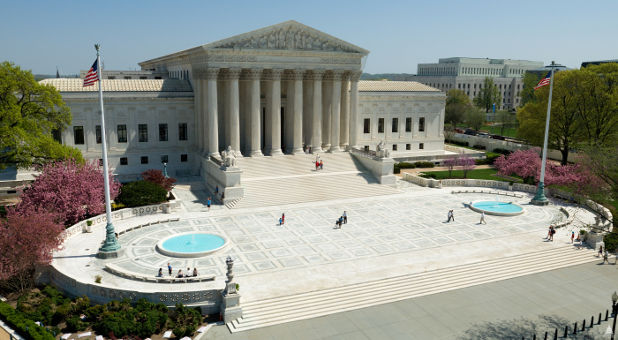The Supreme Court on Wednesday rendered its decision in McCutcheon v. Federal Election Commission. The court struck down, under the free speech guarantee of the First Amendment, the federal law setting a dollar limit upon the total (or “aggregate”) amount of money a person can spend on political contributions to candidates, parties and political committees. (Limits on contributions to particular candidates and PACs remain in place.) The decision was 5–4, and the dissent sounded the alarm:
“Taken together with Citizens United v. Federal Election Comm’n, 558 U. S. 310 (2010), today’s decision eviscerates our nation’s campaign finance laws, leaving a remnant incapable of dealing with the grave problems of democratic legitimacy that those laws were intended to resolve.”
What a quotable sound bite! The dissent simultaneously invokes the bugbear (to liberals) of the court’s Citizens United decision and proclaims, for campaign-finance regulation, the end of the world as we know it.
The dissenting justices—Justice Breyer, joined by Justices Ginsburg, Sotomayor and Kagan—are being hyperbolic, of course, if not downright hyperventilating. All the McCutcheon decision held was that since donors are already limited in how much they can give to Candidate X, Party Y or PAC Z, it makes no constitutional sense to say that there has to be a limit on how many candidates, parties or PACs the donor can support.
If it’s not corrupting to give $5,200 each to nine candidates for federal office, how can it suddenly become a “grave problem of democratic legitimacy” if the same donor gives the same amount to 10, 12 or 30 candidates?
As the chief justice’s lead opinion explained, “The government may no more restrict how many candidates or causes a donor may support than it may tell a newspaper how many candidates it may endorse.”
Or, to put it differently, if it would be a First Amendment problem for the government to put a limit on how much money a person can spend on different books, newspapers and cable TV channels, isn’t it also a First Amendment problem for the government to put a limit on how much money a person can spend on different political candidates, parties and causes?
The root of the dispute stems from radically different understandings of political corruption. Here’s the chief justice’s take on what corruption means:
“‘The hallmark of corruption is the financial quid pro quo: dollars for political favors.’ Campaign finance restrictions that pursue other objectives, we have explained, impermissibly inject the Government ‘into the debate over who should govern.’ And those who govern should be the last people to help decide who should govern.”
The dissenters, by contrast, claim the chief “defines ‘corruption’ too narrowly.” Does this mean the dissent would characterize as corruption such displays as rewarding with campaign money those who vote a certain way, such as in favor of same-sex marriage? Yet a candidate’s fundraising success naturally depends upon the donors being happy with what the candidate either has done or promises to do, triggering the donors’ support through contributions. If this is corruption, then all money given because of support of a candidate’s views is corruption.
The dissenters assert that, for them, corruption is “understood not as quid pro quo bribery, but as privileged access to and pernicious influence upon elected representatives.” But this definition is hardly helpful.
First of all, whether political influence is “pernicious” begs the question whether that influence is ipso facto corrupt. (Otherwise what is pernicious for one—like lobbying for a certain policy on abortion—is positive for someone else.)
Second, “privileged access” is not just the province of big donors. It also is a feature of celebrities, major media, and a host of political heavy hitters, from EMILY’s List, Planned Parenthood and unions on the left to the Chamber of Commerce, pro-lifers and the gun lobby on the right. (And even small donors sometimes get privileged access in return for money.)
Are politicians supposed to give the cold shoulder to their allies, just because those allies can convert political support into votes? After all, the whole point of raising campaign money is to use it to garner votes.
Having support from grass-roots organizations, favorable coverage in the media and endorsements from the icons of pop culture cuts out the middlebucks, so to speak, by translating directly into votes. Isn’t this even more corrupting than money, if the McCutcheon dissenters are right?
The problem, according to the dissenters, is “the danger that officeholders will decide issues not on the merits or the desires of their constituencies, but according to the wishes of those who have made large financial contributions valued by the officeholder.”
This is certainly a danger. But it is no different from the danger that politicians will make decisions because they crave fawning reviews in the mainstream media or invitations to elite social events or campaign backup from certain powerful special-interest groups. If the danger is “special access and influence,” as the dissenters claim, why focus only on one kind of influence, namely that resulting from money? The First Amendment solution, the McCutcheon court properly holds, is to take the government out of the business of tilting the political playing field.
Walter M. Weber is senior litigation counsel for the American Center for Law and Justice in its Washington, D.C., office.
See an error in this article?
To contact us or to submit an article






















